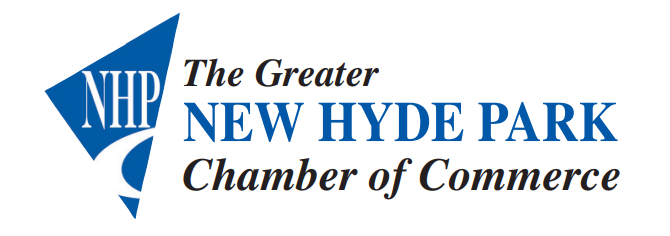Affordable Startup Growth: Quality First, Costs Controlled
Launching a startup often means balancing tight budgets with the need to deliver quality. The challenge is clear: founders want to minimize expenses without sabotaging long-term sustainability. Smart strategies—ranging from affordable compliance support to lean operational practices—can help reduce costs while still building a solid foundation.
For instance, services that provide worry-free compliance for small businesses can prevent costly errors while keeping early expenses under control. This approach ensures entrepreneurs don’t just survive launch day, but thrive over the long haul.
TL;DR
-
Problem: Startups face high upfront costs that can cripple cash flow.
-
Friction: Cutting corners too aggressively leads to compliance risks, poor user experience, or rework costs.
-
Solution: Focus on cost-reduction strategies that deliver lasting value, from affordable compliance to modular hiring and automation.
-
Result: Strong foundations, fewer mistakes, lower operating costs, and sustainable growth.
The Foundation: Affordable Long-Term Compliance
Early mistakes—especially with taxes, registrations, or filings—are among the most expensive errors a startup can make. That’s why many founders now choose business formation plans that bundle affordability with compliance support. By using solutions that include built-in tracking or guidance, startups prevent fines and avoid time-consuming corrections later.
The result: peace of mind today and savings tomorrow. Instead of revisiting foundational errors, entrepreneurs can focus energy on customers, growth, and product-market fit.
Explore worry-free compliance for small businesses.
Practical Ways to Cut Costs Without Sacrificing Quality
-
Leverage automation tools for recurring admin tasks (Zapier).
-
Adopt cloud-native infrastructure instead of buying expensive servers (AWS Startup Programs).
-
Hire modular talent on-demand rather than full-time for every role (Upwork).
-
Use open-source software where viable (GitHub).
-
Tap into startup credits from accelerators or partnerships (Stripe Atlas).
-
Negotiate vendor contracts aggressively—many suppliers have hidden flexibility.
-
Focus on user validation before scaling, reducing waste on features no one wants (Lean Startup Guide).
Checklist: Ensuring Smart Cost Management
Before cutting expenses, ask:
? Does this choice improve long-term efficiency?
? Could it create hidden costs down the road?
? Will it affect customer experience?
? Does it comply with regulatory standards?
? Is there a proven alternative that delivers 80% of the value at 20% of the cost?
How-To: Build Lean Without Weakening Your Business
Step 1 → Map Fixed Costs
Identify non-negotiable expenses (compliance, hosting, insurance).
Step 2 → Apply the Substitution Rule
Ask: “Is there a cheaper alternative that maintains quality?”
Step 3 → Automate & Outsource
Move recurring admin tasks to automation or part-time specialists.
Step 4 → Monitor Metrics Closely
Review burn rate, unit economics, and CAC monthly.
Step 5 → Invest in “Error Prevention”
Budget for compliance, audits, and customer service—saving more in the long run.
Smart Savings vs. False Economies
|
Strategy |
? Smart Saving |
? False Economy |
|
Compliance |
Use bundled formation + tracking service |
Skip legal setup and risk fines |
|
Talent |
Hire fractional experts |
Overhire early, then cut staff |
|
Technology |
Adopt open-source + cloud credits |
Build custom stack too early |
|
Marketing |
Focus on organic + content-led growth |
Overspend on untested paid ads |
|
Operations |
Automate admin |
Ignore quality checks → costly rework |
FAQ
How can startups save money without hurting growth?
Focus on automation, compliance services, lean hiring, and customer validation before scaling.
Should I cut legal and compliance costs in the first year?
No. Compliance mistakes are far costlier than upfront setup. Bundled services are affordable and reduce risk.
Is outsourcing better than hiring?
For early-stage startups, yes. Outsourcing specialized tasks reduces payroll while ensuring quality.
What’s the most overlooked saving tactic?
Negotiating contracts and using startup credits. Many founders overpay because they don’t ask.
Glossary
-
Burn Rate: How quickly a startup spends cash before profitability.
-
CAC (Customer Acquisition Cost): The expense to acquire a new customer.
-
Fractional Talent: Hiring part-time experts instead of full-time employees.
-
False Economy: A decision that saves money short-term but costs more later.
-
Compliance Tracking: Monitoring legal and regulatory obligations to avoid penalties.
Conclusion
Reducing startup costs is about strategy, not shortcuts. By investing in compliance, using modular tools, and focusing on sustainable value, founders can cut expenses without undermining their growth. The payoff is clear: lean operations, strong compliance, and long-term success.
Discover endless opportunities and connect with a vibrant business community by visiting the Greater New Hyde Park Chamber of Commerce today!


